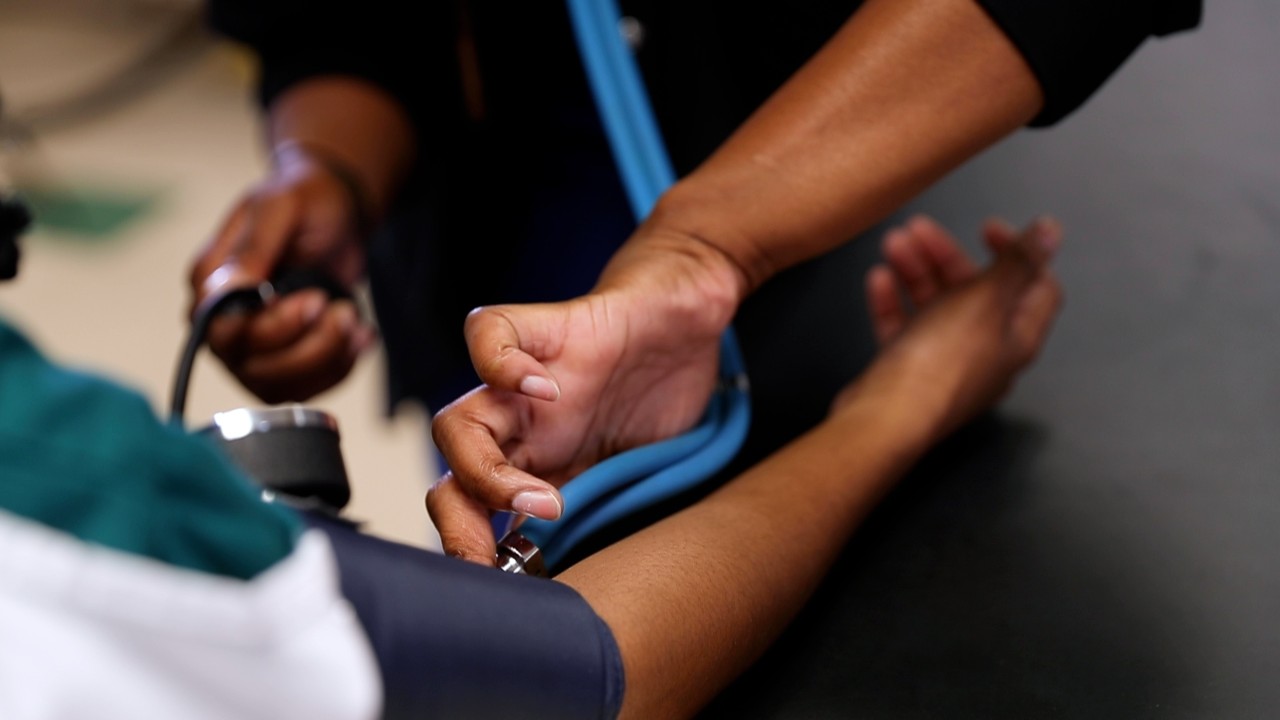Completing a healthcare training program can provide aspiring medical assistants with the knowledge and skills they’ll need to pursue jobs in this field. For detail-oriented individuals who like to help people directly, enrolling in a medical assistant training program might be a good fit.
What Do Medical Assistants Do?
Medical assistants play a vital role in the U.S. healthcare system, performing diverse administrative and clinical tasks in a variety of healthcare settings. Although the exact duties of a medical assistant can vary based on their experience level and place of employment, common job duties include the following:
- Greeting and checking in patients, verifying their personal information, and ensuring they complete the necessary forms
- Recording and monitoring patients’ vital signs, such as their blood pressure and temperature
- Taking patients’ medical histories, such as recording information about their current symptoms and previous health issues
- Preparing patients for medical examinations
- Updating and maintaining electronic health records (EHRs) and ensuring patients’ information is documented accurately
- Collecting blood and urine samples for lab testing
- Administering medications as directed by a physician and providing patients with instructions on medication usage
- Administering vaccines and injections, such as flu shots and allergy shots
- Assisting with minor medical procedures, such as wound care, suture removal, and dressing changes
- Performing administrative tasks such as scheduling appointments, answering phones, managing billing and insurance claims, and ordering medical supplies
Most medical assistants work full time, Monday through Friday. However, professionals employed at facilities that provide 24-hour care, such as hospitals and long-term care facilities, may need to work nights, weekends, holidays, and on-call shifts.
Where Medical Assistants Work
Medical assistants work in a variety of settings, such as group medical practices, community care clinics, and long-term care facilities. According to 2022 BLS data, the three most common employers of medical assistants are as follows:
Physicians’ Offices and Clinics
As of 2022, about 56% of medical assistants are employed by physicians’ offices and clinics.
- There are numerous types of physicians, and medical assistant training program graduates often find they can find work in the area of healthcare that they’re most interested in. Examples include primary care, pediatrics, women’s health, gerontology, or any number of specialty areas such as ophthalmology, orthopedics, cardiology, or obstetrics.
- In a physician’s office, medical assistants are likely to see regular patients and get to know them over time, while in a specialist’s office, they might see a broader range of patients who come for one or several visits.
- Generally, working in an office setting means having a regular daytime schedule. Medical assistants might record patients’ histories, measure patients’ blood pressure and heart rate, assist with patients’ exams, and conduct other daily administrative tasks.
Hospitals
As of 2022, 15% of all medical assistants are employed by state, local, and private hospitals.
- A hospital might better suit those who prefer a fast-paced setting. After private practice offices and clinics, hospitals are the second-largest employer of medical assistants. Because hospitals operate around the clock, medical assistants work a variety of different shifts, including late-night shifts.
- In a hospital, medical assistants’ responsibilities range from administrative to clinical duties, and are similar to those performed by medical assistants working in physicians’ offices.
Outpatient Care Centers
As of 2022, 9% of medical assistants are employed by outpatient care centers.
- Outpatient care centers operate as healthcare facilities that are somewhere between a hospital and a clinic. Outpatient care centers provide care that doesn’t require an overnight stay, such as minor surgery and lab tests. They might also provide care to psychiatric or specialty care patients on an outpatient basis.
- Duties for medical assistants working in these facilities range from handling the front desk and phone calls to clinical duties like taking vital signs, drawing blood, and giving patients postoperative care instructions.
Take the Next Step Toward Your Dream of Becoming a Medical Assistant
Most healthcare facilities need medical assistants to help maintain their administrative operations and to work directly with patients. If you’re looking to learn more about where medical assistants can work and what their job responsibilities are, Fortis can help. We offer medical training programs, including medical assistant and medical assistant with basic X-ray diploma programs, at many of our campuses.
Our programs are designed to prepare students for entry-level positions in this in-demand field through a combination of hands-on training and classroom instruction. Are you ready to learn more about how completing a training program at Fortis can help you take the next step toward your dream of working as a medical assistant?
Recommended Readings
The Critical Collaboration Between Medical Assistants and Physicians
How Do I Know if Medical Assisting Is the Right Career for Me?
Medical Assistant Jobs: A Growing Trend


